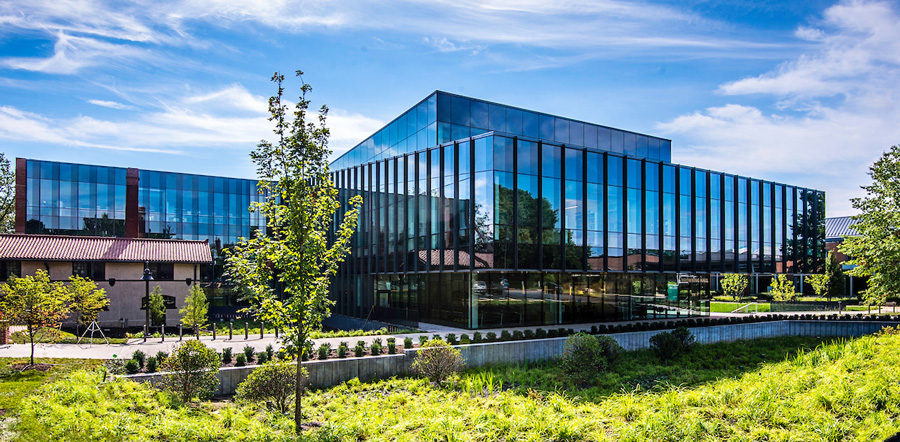Webster University Awarded a Nearly $800K NSF Grant to Launch a Biotechnology Career Preparation Program
September 11, 2025

Webster University has been awarded a $783,379 National Science Foundation (NSF) Experiential Learning for Emerging and Novel Technologies (ExLENT) grant to establish a new program that will prepare undergraduates for careers in the rapidly growing biotechnology industry.
The initiative, titled BIO-PREP (Biotechnology Preparation and Readiness Experiential Program), will be led by Assistant Professor of Chemistry Lindsey Applegate, who serves as the project’s Principal Investigator. She is joined by Lindsay Swearingen, director of Webster’s Impact Center and the co-principal investigators for the grant, and Mary Lai Preuss, interim dean of the College of Science and Health.
“This grant gives us the ability to build strong connections between our students and St. Louis’ thriving biotech sector,” Applegate said. “Our students will graduate with not only the technical skills but also the confidence, professional networks, and career awareness to succeed in this high-demand field.”
According to recent job market analysis, the biotechnology sector is experiencing a significant increase in demand, driven by advancements in personalized medicine, gene editing, and artificial intelligence. It is forecast that the biotechnology market will grow by nearly 13% in the next eight years, due in part to compounding global issues such as evolving genetic diseases and new strains of crop-killing pests and weeds that are resistant to common pesticides.
Webster’s program was developed in partnership with BioSTL, Win Win Scientific, and regional biotechnology companies. The program will provide sophomore and junior majors in biology, biological sciences, and chemistry with hands-on experience, industry exposure, and career readiness training beyond the classroom.
The program offers:
- A new biotechnology career explorations course.
- Laboratory skills training leading to micro-credentialing.
- Paid industry internships.
- Peer and alumni mentoring networks.
The program is designed to support Webster’s diverse student population, who often enter the university with limited awareness of STEM career options outside of healthcare, and BIO-PREP seeks to broaden their horizons by showcasing opportunities in biotechnology.
The NSF-funded project will serve three cohorts of 15 students each, providing a model that Webster plans to replicate and share with institutions in other biotechnology hubs. By fostering greater diversity and access, the program aims to increase participation in well-paying biotech careers and help meet the workforce needs of the region’s fast-growing life sciences sector.
“Biotechnology is a field with enormous potential,” Swearingen said. “With BIO-PREP, we’re ensuring that students from all backgrounds have the tools and opportunities to thrive in it.”
Learn more about the programs available in Webster's College of Science and Health.
